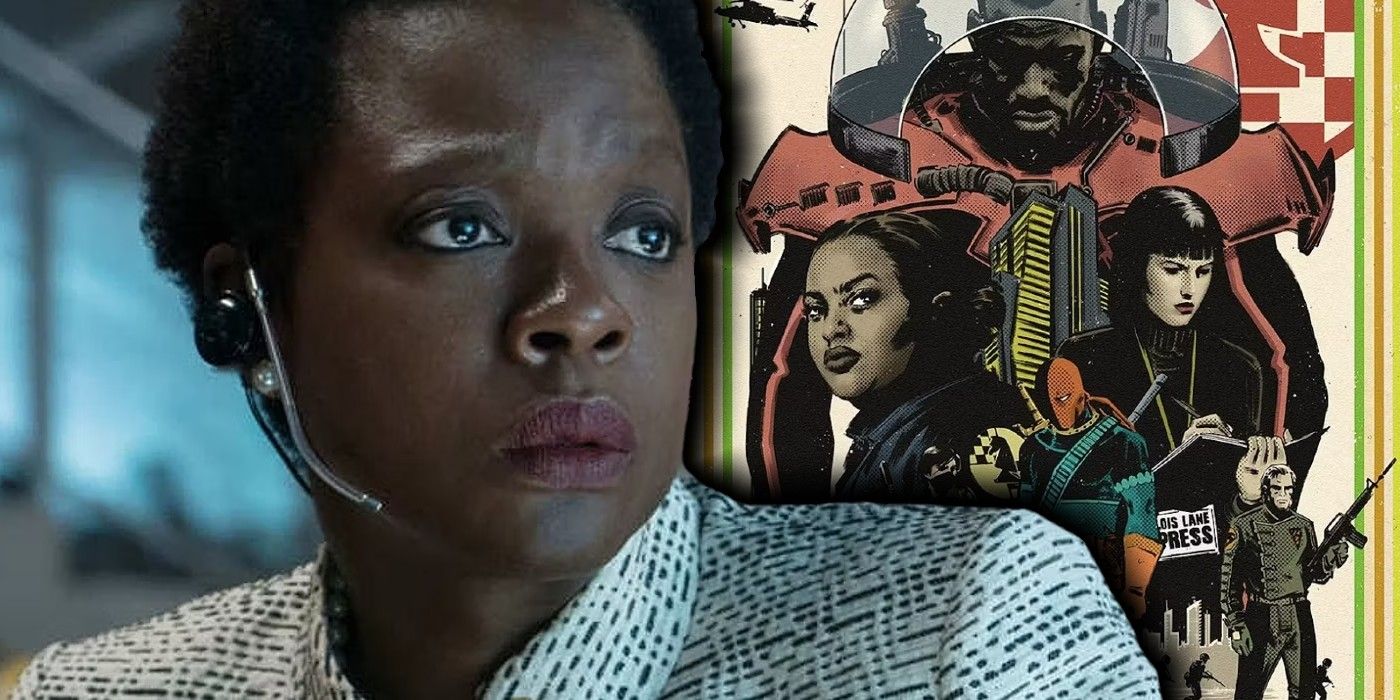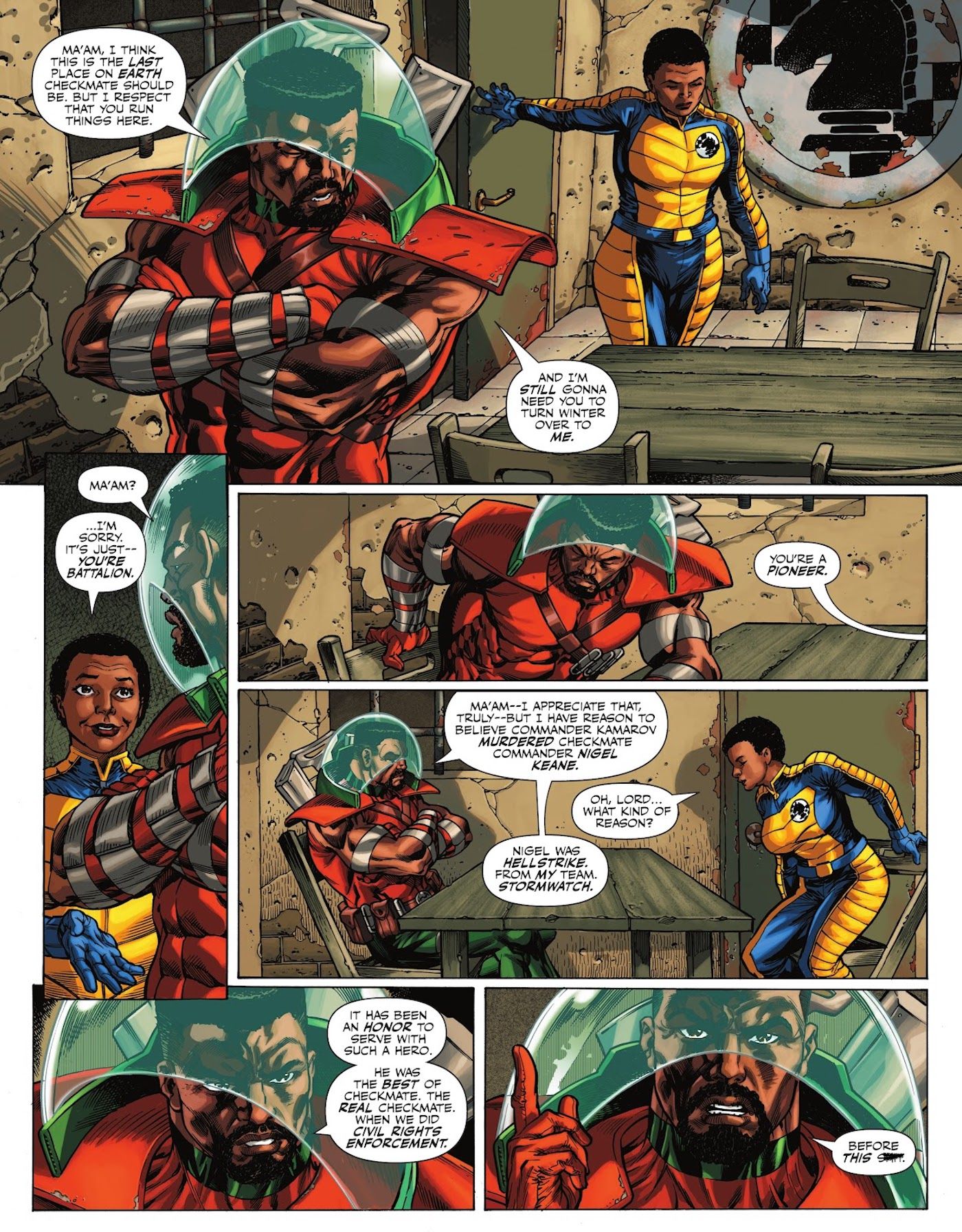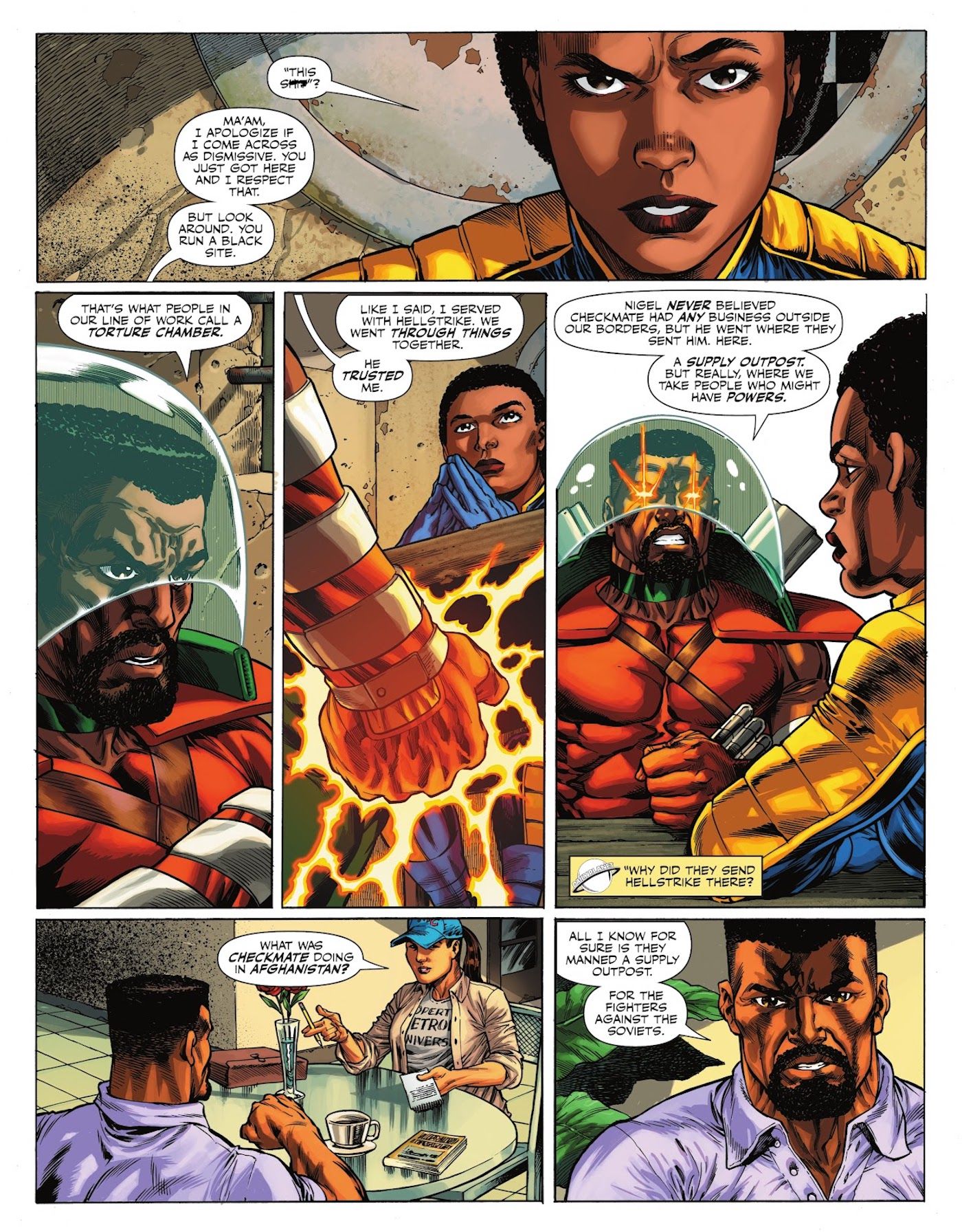Warning! Spoilers for Waller vs Wildstorm #1 ahead!The DC Universe’s own internal intertwining of superheroes and history is complicated and ever-shifting, and an incredible new reimagining of the universe is using the emergence of DC’s super-spy agencies to explore how governments justify overreach and atrocities. By reinventing the origins of government-run superheroes, the series Waller vs Wildstorm is so far telling a story about how the U.S. as a global superpower is using a very different type of superpowers for its own ends.
DC Black Label’s Waller vs Wildstorm by Spencer Ackerman, Evan Narcisse and Jesús Merino imagines a late-Cold War version of classic DC spy agency Checkmate, which in this universe also encompasses classic Wildstorm team Stormwatch. In Waller vs Wildstorm #1, Jackson King aka classic Stormwatch leader Battalion recounts his first encounter with a relatively young Amanda Waller, who is heading up a "black site" for torture in Afghanistan. What’s fascinating about the specifics of Checkmate’s history as recounted here is what they say about the way such black sites are enabled to even exist.
The U.S. Is Using Metahumans To Protect Its Own Interests
In this universe, Checkmate’s explicit original purpose was to protect civil rights, by this point in the story just a pretext for all manner of horrors. The first issue sees Jackson King lamenting what he sees as the corruption of the organization from its original remit, as Checkmate is now using its metahumans to carry out U.S. interests overseas, destabilizing regimes and committing mass murder to spread the U.S.’s ideology. As Ackerman points out in an interview with Elana Levin for Graphic Policy, this isn’t exactly a new origin for Checkmate as much as it is a refocusing and recontextualization of the organization’s original purpose. In Checkmate vol 1 by Paul Kupperberg and Steve Erwin, the group is essentially still a force for protecting human rights, combating threats like White Nationalism. However, by the time it’s reimagined in Greg Rucka’s Checkmate vol 2, the group’s scope has broadened to practically unaccountable international espionage with little regard for morality. As Ackerman says in the Graphic Policy interview -
“The storytelling potential (of this shift in Checkmate’s purpose) is in how neatly it encapsulates the way… the broader ideology of liberal internationalism uses pretexts like enforcing human rights… In order to accomplish the economic and geo-strategic interests of the American empire.”
In presenting Checkmate’s original purpose as public-facing moral good, the book is critiquing how any number of rights violations, and worse, can be justified by finding a nice-sounding pretext.
One important fact that should raise alarm bells with readers is that, in this universe, Checkmate is the first and currently only U.S. group legally allowed to use metahuman powers. In purely “economic and geo-strategic" terms, superpowers are a resource, and it’s impossible to imagine that the U.S. government wouldn’t exploit this resource to its fullest extent. It’s hard to buy that the U.S. would waste the resource of superpowers on civil rights, an area in which the U.S. government is often barely willing devote any assets, especially in the 1980s and earlier. Was the group really set up for this purpose, or was this always just a smokescreen?
This is potentially backed up by the fact that Jackson King’s bemoaning of Checkmate’s slide into corruption can’t itself be taken at face value. In the first issue, Lois Lane interviews King and is quick to point out that the timeline of Waller corrupting the institution from inside in one year is awfully short, and that Battalion doesn’t seem particularly interested in interrogating exactly why Checkmate is running international torture sites in the first place. The fact that this black site is approved at a level above Waller demonstrates that, for all her machinations, Checkmate had already overstepped its purported bounds long before Waller had any sway within it. It only remains to see just how much worse the group can become under her influence and what impacts it has on the DC Universe as Waller vs Wildstorm continues.
Waller vs Wildstorm #1 is on sale now from DC Comics.
Source: Graphic Policy



